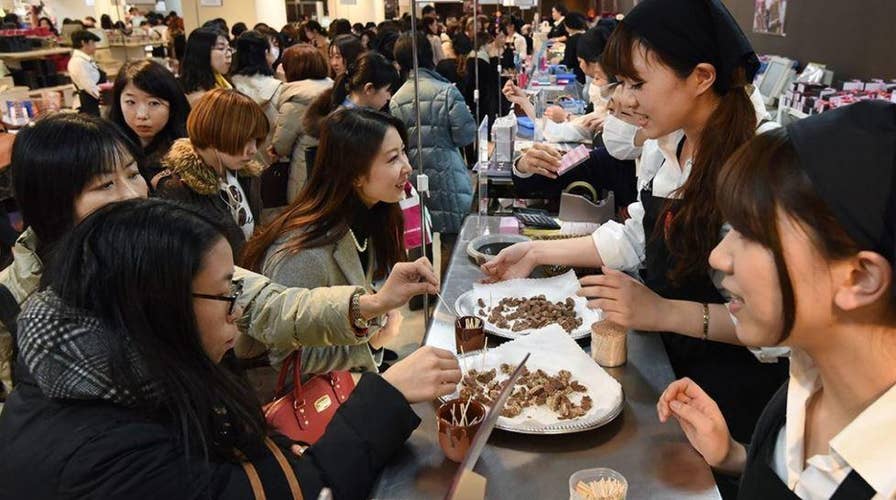Japanese women are rebelling against the tradition of giving male colleagues chocolates on Valentine’s Day
Some Japanese women are rebelling against the tradition of giving male colleagues chocolates on Valentine’s Day due to the financial strain.
Japanese women are beginning to rebel against the tradition of giving male colleagues chocolates on Valentine’s Day due to the financial strain.
The tradition, called “giri choco,” which means “obligation chocolate,” is the act of women buying chocolates for their male coworkers.
VALENTINE'S DAY: THE 'HEART' OF CHRISTIANITY IS LOVE
Meanwhile, significant others or husbands receive “honmei choco” which means “true feelings chocolate” on Valentine’s Day.
The women get their day a month later. On White Day, which falls on March 14, men return the favor.
WOMAN, 19, CHARGED AFTER VIDEO ALLEGEDLY SHOWS HER TOSSING CHAIR FROM HIGH-RISE BALCONY
However, data showed that the tradition was losing popularity. Japan Today reported that 40 percent of workers see the tradition “as a form of power harassment.” Some work places have even banned the tradition altogether.
“Before the ban, we had to worry about things like how much is appropriate to spend on each chocolate and where we draw the line in who we give the chocolates to, so it’s good that we no longer have this culture of forced giving,” a person who was surveyed told Japan Today.
The form of gift-giving was seen as a financial burden. A study by a Tokyo department store found that 60 percent of women will buy chocolates for themselves on Valentine’s Day. Meanwhile, 36 percent of women said they would gift their significant other or partner with the sweet treat. The study said 35 percent of women planned to hand out chocolate to their male colleagues.

